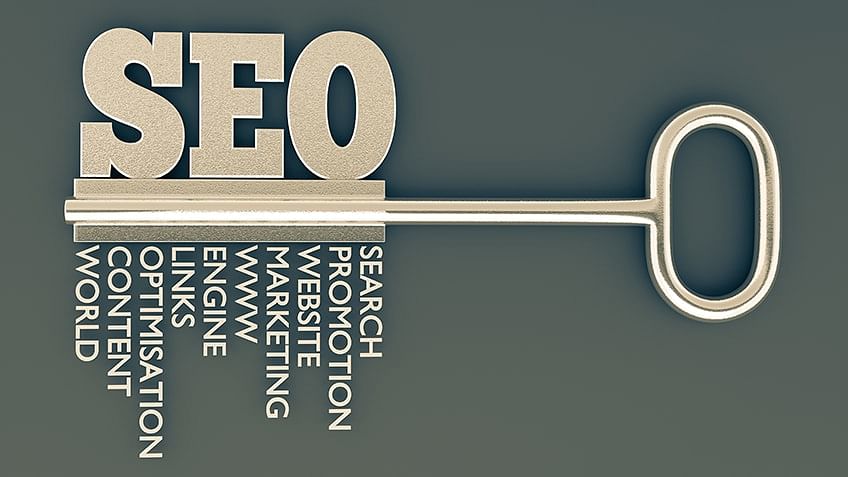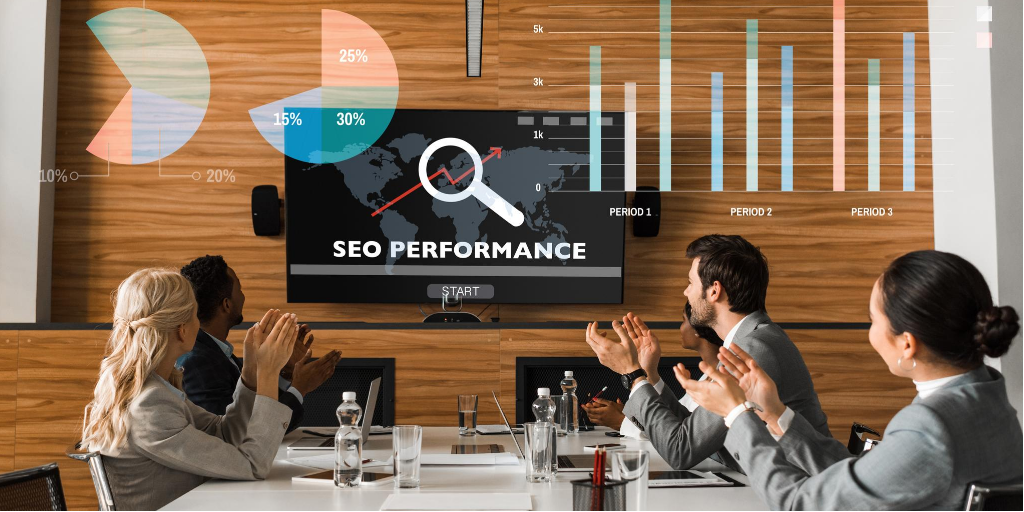Website loading speed is a crucial aspect of seo as it impacts user experience and search engine rankings. Fast loading websites not only provide a great user experience but also improve conversion rates, while slow-loading websites may lead to discontent among users and higher bounce rates.
As the number of mobile users increases, it becomes even more important to ensure that your website loads quickly on mobile devices. In this article, we will explore how website loading speed impacts seo, the factors that affect website speed, and strategies to optimize your website’s loading time.

Credit: www.acquisition-international.com
Understanding Website Loading Speed
When it comes to website loading speed, it’s crucial to understand what it is and why it matters. Loading speed refers to the amount of time it takes for a website to display its content fully. In other words, it’s the time it takes for a page to load from the moment a user clicks on a link to when the browser renders the entire page.
Analyze the following topics that you should know to improve your website by understanding website loading speed.
What Factors Impact Website Loading Speed
Numerous factors can impact the website loading speed. Here are some of the most critical ones:
- Server location and performance: The server location and how well it performs are crucial to the website loading speed. If the server is far away, it can take longer for the information to travel back and forth, resulting in a slow loading speed.
- File size: The larger the file size, the longer it takes to download, which affects the website’s loading speed. Therefore, optimizing images, videos, and other media files can significantly speed up the loading time.
- Code quality: Poor coding practices like unused or outdated plug-ins, poorly structured code, and the use of deprecated html tags can slow down the website loading.
- Browser caches: Web browsers store previously visited data like images, scripts, or css files in the cache. If the user revisits the website, the browser can quickly retrieve the data from the cache, thereby speeding up the loading time.
Tools For Measuring Website Loading Speed
You require specific tools and methods to measure the website loading speed. Here are some commonly used ones:
- Google pagespeed insights: This is a free tool from google that assesses website loading speed on both desktop and mobile devices.
- Pingdom tools: This tool tests how quickly a web page loads and provides a detailed report with performance analysis.
- Gtmetrix: This tool runs various speed tests on your website and gives detailed insights on how you can optimize it.
Common Website Loading Speed Issues And How To Diagnose Them
When it comes to website loading speed, there are common issues that can slow down your site. Diagnosing the problem is the first step towards fixing it. Here are some of the most common problems:
- Too many http requests: Multiple http requests to the server can slow down the website. Reduce the number of requests to speed up the loading time.
- Unclean code: Unclean code with nested loops and unused css or javascript can slow down your website. Ensure clean code to avoid this issue.
- Bad server response time: If the server response time is higher, the website will take longer to load. Look for the root cause and address it.
- Large image size: Large image sizes can slow down the website. Compress the images and use modern image file types like jpeg xr, jpeg 2000, or webp.
By identifying and fixing these common website loading speed issues, you can significantly improve your website’s performance, which can positively impact its ranking on search engines.
Tips For Improving Website Loading Speed
In today’s fast-paced digital age, website loading speed is a critical factor in determining its success. A slow-loading website can lead to a higher bounce rate, which means lower engagement and lesser conversions. In contrast, a website that loads quickly can impress visitors and boost engagement with your brand.
Here are some essential tips that can help improve your website’s loading speed:
Optimizing Images And Videos
Images and videos play a crucial role in enhancing your website’s visuals and engagement. However, they also tend to be bulky files that can slow down your website’s loading speed. To optimize images and videos, you can follow the tips outlined below:
- Reduce the file size of images and videos without compromising their quality
- Compress images and videos to reduce their file size
- Use image formats that load faster, such as jpeg and png
- Lazy-load images and videos to load only when necessary
- Use videos that are hosted on external services like youtube or vimeo
Reducing Server Response Time
Server response time is one of the most critical factors in determining website loading speed. It represents the time taken by the server to respond to a request made by the user’s browser. To reduce server response time, you can follow these tips:
- Use a reliable hosting service provider with faster server response time
- Reduce the number of http requests
- Remove unnecessary plugins and scripts
- Enable caching of web pages in the server
Enabling Browser Caching And Compression
Browser caching and compression can help improve your website’s loading speed. Caching can reduce the number of http requests, while compression can reduce the file size of resources sent to the browser. Here are some tips to optimize browser caching and compression:
- Configure the server to enable browser caching
- Enable gzip compression for compressible resources like html, css, and javascript
Minimizing Http Requests
The number of http requests made by the website can affect its loading speed. The more the http requests, the longer the loading time. Here are tips to reduce http requests:
- Combine small files into a single larger file
- Use css sprites to reduce the number of image requests
- Remove unused css and javascript files
Using A Content Delivery Network (Cdn) For Faster Page Loading
Using a content delivery network (cdn) can help enhance your website’s loading speed by caching website content in multiple locations worldwide. This helps reduce the distance between the user’s device and the server, thus reducing loading time. Here are some tips to optimize cdn usage:
- Choose a reliable cdn service provider
- Configure the cdn to cache frequently used resources
- Monitor cdn performance regularly
Website loading speed is a critical factor in determining the user experience on your website. By implementing the tips outlined above, you can improve your website loading speed, enhance user engagement, and boost conversion rates.
Impact Of Website Loading Speed On Seo Rankings
How Google Measures Website Loading Speed And Its Impact On Search Engine Rankings
Website loading speed is an essential aspect of seo that impacts your website’s search engine rankings. Google uses several factors to determine a website’s search rankings, including website loading speed. The faster your website loads, the higher your website’s search engine rankings will be.
Here are some key points on how google measures website loading speed and its impact on search engine rankings:
- ### pagespeed insights
Google uses pagespeed insights to measure website loading speed. This tool analyzes and rates your website’s loading speed on both desktop and mobile devices. It gives a score between 1 and 100, with a higher score indicating better website performance.
- ### first contentful paint (fcp)
Fcp is the time it takes for the first content on your website to appear on the user’s screen. Google considers fcp as an important factor in determining website loading speed. A faster fcp leads to a better user experience and higher search engine rankings.
- ### time to interactive (tti)
Tti is the time it takes for a website to become fully interactive for the user. It includes the time it takes for the website to respond to user input. A faster tti improves user experience and search engine rankings.
- ### impact of website loading speed on user experience
Website loading speed has a significant impact on user experience. Slow loading websites can lead to a poor user experience, causing visitors to leave the website quickly. This negatively impacts search engine rankings as google factors in bounce rate in their search algorithms.
Other Factors That Impact Seo Rankings And How Website Loading Speed Fits Into The Equation
While website loading speed is a crucial factor for seo rankings, it is not the only one. Several other factors contribute to website rankings. Here are some key points on other factors that impact seo rankings and how website loading speed fits into the equation:
- ### content quality
High-quality content is vital for search engine rankings. While website loading speed influences user experience, the quality of content is equally critical. Quality content leads to longer user sessions and lower bounce rates, which positively impact website rankings.
- ### user engagement
User engagement is the extent to which visitors interact with your website. It includes bounce rates, click-through rates, time on site, and more. Website loading speed affects user engagement and experience, which impacts search engine rankings.
- ### mobile friendliness
Mobile devices are ubiquitous and should not be overlooked when optimizing for search engines. Websites that are not mobile-friendly often have a slower website loading speed, which can harm search engine rankings.
- ### backlinks
Backlinks are crucial to seo rankings. Websites that have more backlinks from high-ranking websites will rank higher in search engines. While website loading speed is an important factor, it is not as critical as backlinks.
Website loading speed is an essential factor in seo rankings. Google measures website loading speed using pagespeed insights, fcp, and tti. While website loading speed is crucial, it is not the only factor in website rankings. Content quality, user engagement, mobile-friendliness, and backlinks are also vital factors that impact search engine rankings.
As a website owner, optimizing these factors alongside website loading speed is necessary for higher search engine rankings.
Frequently Asked Questions For Seo Website Loading Speed
Why Is Website Loading Speed Important For Seo?
Website loading speed is important for seo because search engines rank faster websites higher in search results. Also, fast loading speed improves user experience, reduces bounce rates, and increases conversions.
What Is The Ideal Website Loading Speed For Seo?
The ideal website loading speed for seo is three seconds or less. However, anything up to eight seconds is acceptable. Websites that load in more than eight seconds may significantly impact website rankings and user experience.
How Can I Improve My Website Loading Speed For Seo?
You can improve your website loading speed for seo by optimizing the website images, minifying css and javascript files, compressing html code, reducing server response time, and enabling browser caching.
Will A Fast Website Loading Speed Guarantee Higher Search Engine Rankings?
A fast website loading speed is a critical factor in higher search engine rankings. However, other factors such as quality and relevancy of content, backlinks, social signals, and usability also contribute to higher rankings.
Does Mobile Website Loading Speed Impact Seo?
Yes, mobile website loading speed impacts seo significantly. With more users accessing websites on mobile devices, search engines prioritize mobile-friendly websites that load faster, improving user experience and engagement.
What Tools Can I Use To Measure Website Loading Speed For Seo?
You can use tools like gtmetrix, google pagespeed insights, and pingdom to measure website loading speed. These tools also offer suggestions to improve website performance to achieve higher search engine rankings.
Conclusion
As we conclude our discussion on seo website loading speed, it’s evident that website speed plays a crucial role in improving the user experience and ranking on search engines. By optimizing images, minimizing http requests, reducing server response time, and choosing a reliable host, you can boost your website’s loading speed.
Remember that slow websites lead to decreased user engagement, higher bounce rates, and reduced conversions. Therefore, it is essential to prioritize your website’s loading speed in your seo strategy. By implementing the right techniques and monitoring your website’s performance consistently, you can ensure that your website doesn’t lose traffic or ranking due to slow loading speeds.
So, invest in your website’s loading speed today, and enjoy the improved user experience and better search engine ranking!




